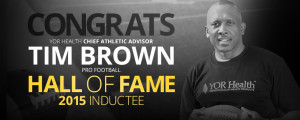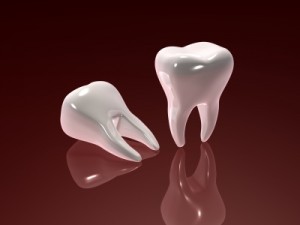 Gum infections can lead to heart disease, diabetes, and other health conditions, according to Dr. Damon R. Johnson. Here, the Edmond dentist opens up about why cavities aren’t the only issue that can arise from poor oral hygiene.
Gum infections can lead to heart disease, diabetes, and other health conditions, according to Dr. Damon R. Johnson. Here, the Edmond dentist opens up about why cavities aren’t the only issue that can arise from poor oral hygiene.
Interviewing Experts: Before we begin we wanted to thank you, Dr. Johnson, for taking your valuable time to chat with us today.
Edmond Dentist, Dr. Damon R. Johnson: It’s not a problem at all. I’m glad to have the opportunity.
Interviewing Experts: We would like to start a series on health. We understand that the mouth is regarded among dental professionals as the portal to the rest of the body. Is that true?
Edmond Dentist, Dr. Damon R. Johnson: It is. Germs that build up in the mouth can enter the body…
Interviewing Experts: Is there a link between infections of the mouth and diseases of the body?
Edmond Dentist, Dr. Damon R. Johnson: There is. A long-term mouth infection may increase a person’s risk to contract a number of illnesses. Diabetes, cardiovascular disease, and pregnancy complications included.
Interviewing Experts: How much more likely are people with gum disease to suffer with heart problems?
Edmond Dentist, Dr. Damon R. Johnson: Studies have found that coronary heart disease occurs twice as often in people with periodontitis.
Interviewing Experts: Does bone loss of the mouth increase the risk of stroke?
Edmond Dentist, Dr. Damon R. Johnson: Yes, it can. Gum disease can trigger atherosclerotic plaques, a risk factor in stroke and heart attack.
Interviewing Experts: How is periodontal disease related to diabetes?
Edmond Dentist, Dr. Damon R. Johnson: It’s unclear how, but researchers have found evidence that gum disease has a negative effect on metabolism which can lead to pre-diabetes.
Interviewing Experts: And if it’s treated…?
Edmond Dentist, Dr. Damon R. Johnson: Type II diabetics that seek dental treatment for periodontal disease have fewer instances of a condition known as oxidative stress.
Interviewing Experts: What is that?
Edmond Dentist, Dr. Damon R. Johnson: Oxidative stress is when the body has a lower than normal level of antioxidants – molecules that inhibit the oxidation of damage to the body’s other cells.
Interviewing Experts: Aside from the telltale swollen, bleeding gums… I understand that periodontal disease is no joke…
Edmond Dentist, Dr. Damon R. Johnson: Not at all. Some studies have even linked gum disease to depression, stress, and a host of other mental health concerns.
Interviewing Experts: I get the feeling that’s not the worst of it.
Edmond Dentist, Dr. Damon R. Johnson: I wish it was. Untreated early-onset periodontal disease may quadruple a person’s chances of Alzheimer’s disease. Scientists are still working to find the conclusive link, but the research is promising enough that gum disease might just be a preventable risk factor for this debilitating brain disease.
Interviewing Experts: You mentioned pregnancy complications…?
Edmond Dentist, Dr. Damon R. Johnson: One of the most concerning things I can tell my expecting patients is that their babies may be at-risk of low birth weight and even prematurity if they have gum disease. That’s why it’s so important for pregnant women to maintain a relationship with their dentist.
Interviewing Experts: What other major organs can poor oral health affect?
Edmond Dentist, Dr. Damon R. Johnson: If you want the short answer: all of them.
Interviewing Experts: Even the kidneys?
Edmond Dentist, Dr. Damon R. Johnson: Yes, unfortunately. Failure to care for teeth properly may actually lead to kidney disease and even worse, if left unchecked, renal failure.
Interviewing Experts: All of this sounds like we need to go brush our teeth right now!
Edmond Dentist, Dr. Damon R. Johnson: I’d say that’s not such a bad idea.
 Tim Brown, Heisman Trophy winner and former Los Angeles Raider, was enshrined at the Football Hall of Fame in January 2015. Here,
Tim Brown, Heisman Trophy winner and former Los Angeles Raider, was enshrined at the Football Hall of Fame in January 2015. Here, 
 Skilled nursing care and assisted living are often confused with one another. However, according to today’s guest,
Skilled nursing care and assisted living are often confused with one another. However, according to today’s guest,  If you’ve been paying attention to cooking shows and lifestyle magazines as of late, you may have noticed an unfamiliar name in many recipes, points out women’s health expert
If you’ve been paying attention to cooking shows and lifestyle magazines as of late, you may have noticed an unfamiliar name in many recipes, points out women’s health expert  A health products leader and innovator,
A health products leader and innovator,  One thing about a routine dental visit that can make people uncomfortable is a lack of understanding the terminology used by dentists. It’s almost like a foreign language. In a recent interview, Glendora cosmetic dentist, Dr. Viviane Haber explained why patients should familiarize themselves with the most common dental terms.
One thing about a routine dental visit that can make people uncomfortable is a lack of understanding the terminology used by dentists. It’s almost like a foreign language. In a recent interview, Glendora cosmetic dentist, Dr. Viviane Haber explained why patients should familiarize themselves with the most common dental terms.